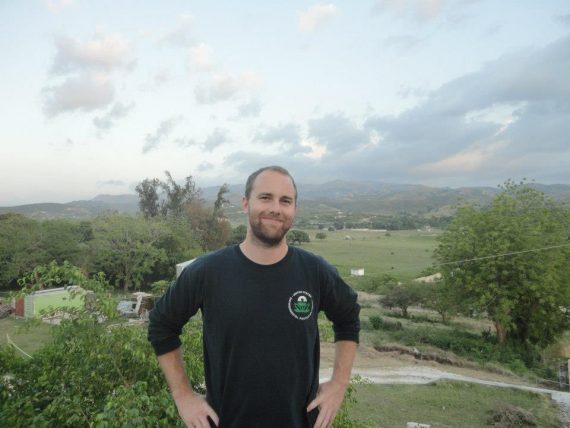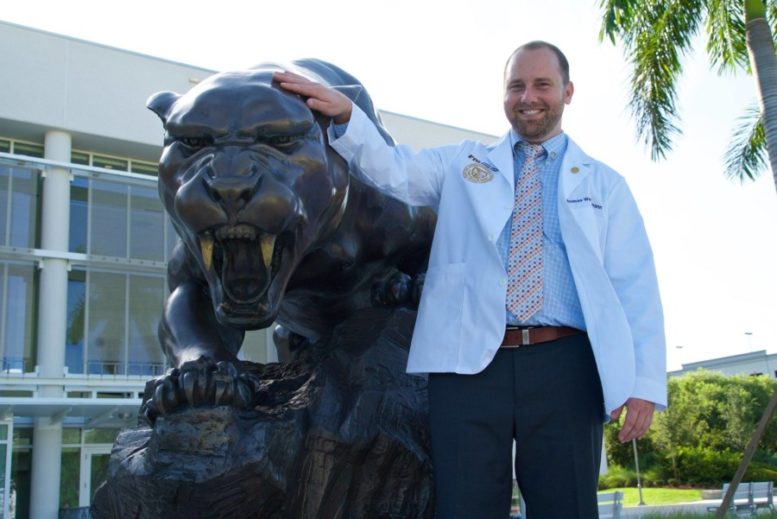
On his first day in medical school this past August, Alex Weppelmann got word that his research paper on dengue and West Nile virus (WNV) in Haiti had been accepted for publication in the prestigious American Journal of Tropical Medicine and Hygiene (AJTMH). That’s sort of like a rookie baseball player hitting a home run his first time at bat in the majors.

The publication is the official scientific journal of the American Society of Tropical Medicine and Hygiene, which is “the most respected society internationally for tropical medicine,” says Dr. Aileen Marty, a world-renowned tropical disease specialist and professor at Herbert Wertheim College of Medicine. “For one of our students to get published in its journal is outstanding, and we should all be very proud.”

Weppelmann went to Haiti in 2013 to do research on cholera for his doctoral project—he has a Ph.D. in environmental and global health from the University of Florida. Then he and his team got adventurous. They started looking for all kinds of viruses. They took blood samples from more than 600 people. They tested for antibodies—proof that someone has been exposed to, in this case, a virus and their body’s immune system created antibodies to fight off the intruder.
“If you sample a population of 2-to-80-year-olds and you have people who are 60 years old and they still don’t have antibodies to West Nile, it’s probable there’s not a whole lot of transmission going on, but if you have people under 5 and 74 percent of them have antibodies towards dengue, that’s a pretty big problem,” says the 31-year-old from Orlando.
Their findings were just published in the January print issue of AJTMH in an article titled, “A Tale of Two Flaviviruses: A Seroepidemiological Study of Dengue Virus and West Nile Virus Transmission in the Ouest and Sud-Est Departments of Haiti”.
“Weppelmann’s work is very valuable,” says Marty. “It’s a huge study of hundreds of persons and provides empirical data that supports and demonstrates something that prior to this study was no more than a supposition… i.e., that dengue is a major problem in Haiti.”
“We saw a lot of dengue but virtually no West Nile virus and so we started asking why,” says Weppelmann. He speculates that the reason for the lack of WNV in Haiti lies in its lack of trees; the massive deforestation has taken away the natural habitat of many birds which serve as host for the virus.
Intrigued by what he describes as an extraordinary living laboratory, Weppelmann returned to Haiti in 2015 and hopes to go back yet again. This business of investigating exotic diseases fascinates him. He says he’s thinking of becoming a pathologist or an infectious disease specialist. He’s not sure yet. He still has a few years to think about it.






